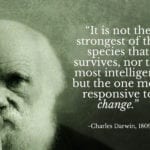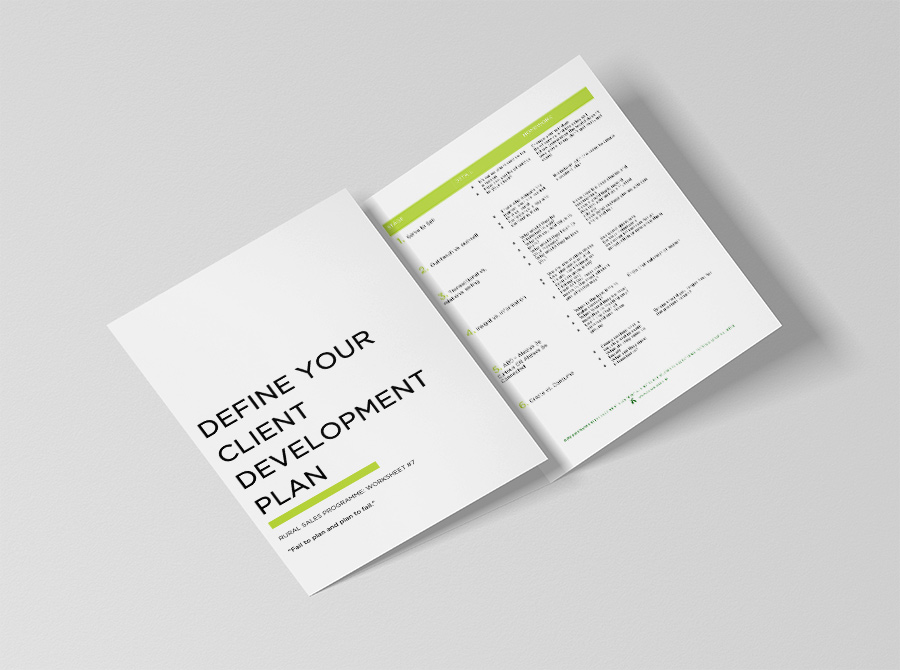50 Proven Sales Interview Questions You Should Be Using
Salespeople can be very persuasive. It’s their job to be. This means you need to be especially on your game when recruiting and interviewing for sales. Doing your homework and preparing well, just like candidates, helps ensure an effective evaluation and selection process for both parties and can save you the very expensive mistake of making the wrong hire.
So before we talk about the art of asking the right questions to get the right answers, we first need to do some groundwork. What are the ingredients to a successful rural sales interview process? What things could you do differently that will de-risk the process? How can we try ensure we get real-life responses?
Here’s a few pointers to help you:
1. Begin with the end in mind
First and foremost you need to take the time to make sure you get the PD (Position Description) right. The discipline of writing it down will force you to consider what you need most.
Who are you looking for? What role is it? What specific deliverables and outcomes does the business need? Is the role new or can it be filled internally using existing talent? Is budget and business case available to make this hire work for the business? Do they need sector experience or are we looking for skills that we can use and train them up for sector?
2. Use competency based questions
The traditional way of interviewing is flawed because it’s fake and artificial and results in manufactured answers that are pre-made. The good candidates will always work out that they are best to tell you what you want to hear. We call it Responsive Bias. They want to give you answers that are more acceptable to you thus increasing the chances of being hired.
For me, I put much more stock into a candidate who is honest and constructive. If they were able to point out with evidence why we might be doing something wrong that would make them more qualified.
Just by asking the simple question “Why” can help combat this bias. It qualifies why they responded in the way they did and uncovers the deeper, true underlying reasons to their answer. A bit like objections, the initial ones are always the surface of something deeper. Dig deeper.
3. Suggest a Live Brief
I always prefer to set candidates a practical exercise to see how they approach situations. Sometimes it’s a live brief once they’ve signed a CA or NDA. This approach is useful at two levels:
- It means they can work on a live customer sales scenario giving them a true insight to the business and its specific challenges meaning they can better evaluate and educate themselves on a possible fit and career move
- The business gets to take them for a test drive and see how they think and approach things on a live job vs. a hypothetical scenario that has no business application
Note: when initiating this, be mindful of and respect the candidate’s time. Only use one brief or situation. It’s not a school exam, it’s one test.
4. Involve the Wider Team When Recruiting
Doing the full 360 means using the team. The cost of getting the wrong hire is expensive so spread the risk.
Deloitte and Gallup research states the cost of losing and not retaining talent can be 1.5-2 x costs of annual salary which backs up the findings of earlier studies (Bliss, 2001; Hansen, 1997; Phillips, 1990) which estimated the cost to recruit and train new employees at approximately 150% of their annual salary.
We all have bias and blind spots so a full team or panel can help us reduce the expense and risk of us making decisions that confirms or validates our beliefs.
Use the wider team to help you manage that risk.
5. Get sales candidates out of their natural environment
See how they perform outside the meeting room. How do they interact with waiting staff? Do they handle their drink well? How are their manners? How do they drive? Are they courteous? Take them to see a client. See what they pick up and observe. Did they listen? What recommendations did they make?
Taking them outside the boardroom you will get a fuller, broader picture of the candidate.
6. Start the recruitment interview early
An oldie but a goodie. By being ahead of time you’ll find out how well they plan ahead too. Are they there in reception ready to go or still on their way?
The same applies when companies are late. It sends the wrong signal. Be on time for your candidates too. First impressions count both ways.
7. Use some outside help
Sometimes it pays to use someone who is proven in the same field you’re recruiting in. They can help you screen candidates, prepare for and attend interviews in an independent, objective manner. They say “it takes one to know one” so why don’t you give it a try.
An objective independent advisor might be able to unearth new topics using different techniques that help you uncover areas and risks you might not have got using more traditional methods.
The cost of getting it wrong as Deloitte and Gallup research suggest can be very expensive (up to 1-1.5x annual salary once you account for recruitment costs, management recruitment time, ramp time and business/client disruption). The small investment of using an independent proven, qualified advisor could be well worth it.
+++
And here are those promised questions to help you extract the best insights and answers in a sales recruitment interview process.
Just like sales, you need to ask the right questions to get the right answers. Here they are:
50 Sales Interview Questions
(note: the following questions assume they already have rural sales experience and work in the rural market)
1. How would friends and family describe you as a person (probing for: self-awareness and EQ). What about your colleagues? (ask them knowing you’ll be asking their peers so you can see if their answers align)
2. What makes you different and unique?
3. Why do you matter more than others we’ll interview for this role?
4. What book has had the greatest impact or influence on you and why?
5. What did you learn from reading it?
6. I can see you have completed XYZ qualification – give me an example of how you’ve applied that knowledge rather than just retained it?
7. Tell me about your proudest sales moment and why?
8. What process did you use to secure this sale?
9. What has been one of your most challenging sales scenarios?
10. What process do you use to qualify prospects and generate leads?
11. When you’ve lost a sale, what were the biggest learnings?
12. What’s most important margin or customer relationship?
13. What’s your view on discounting?
14. What are you willing to sacrifice to get a deal?
15. What are you not willing to sacrifice to get a deal?
16. How do you motivate yourself about a sales setback?
17. How do you keep yourself motivated generally?
18. How do you maintain a positive mindset?
19. Describe the ideal sales team environment?
20. What sales culture do you perform best within?
21. What could you bring to our sales culture?
22. Who has been your best sales manager or coach?
23. When do you dedicate time to learning and expanding your sales skills?
23. When and where do you learn best? What time of day?
24. Where do your best sales motivation and influences come from?
25. What is your view on sales training?
26. What do you think constitutes the basics in sales training and skills?
27. What do you think sales people could improve at most?
28. What sales learnings and improvements could you bring to share and teach us?
29. Where do you think you can improve most?
30. Where is your next learning opportunity?
31. Do you have your own professional development plan?
32. What area of sales do you think you’re strongest at?
33. Which areas of sales do you think you’re the weakest?
34. Where do you think you need more support most?
35. Have you ever mentored or coached others in sales?
36. What have those outcomes been?
37. How would you describe your sales approach?
38. What would your direct reports say about your sales approach?
39. What would your clients say about your sales approach?
40. How do you respond to the view that you come across as more into service than sales?
41. What do you think is the #1 skill for rural sales people?
42. What defines great rural sales people from poor ones?
43. What areas of sales would you like to specialise in most and master?
44. What’s your view on marketing people?
45. How do you work with them effectively?
46. Can you tell us about how you have managed to successfully integrate the sales process with your marketing team?
47. What’s your view on centralised vs. decentralised marketing and sales teams?
48. Which one in your opinion is better?
49. Have you ever used partners or affiliates to help you sell? What have been successful examples?
50. What sales advice do you have for us a business? How could you help us sell more?
+++
By asking these questions you’ll soon find out if they can sell themselves to you.
I hope you find them useful.
Good luck.
What sales questions are we missing? Which ones work best for you?
Let us know in the comments below or using the share buttons below so we can help companies and candidates get a mutual win: win using better, more effective sales recruitment processes.





